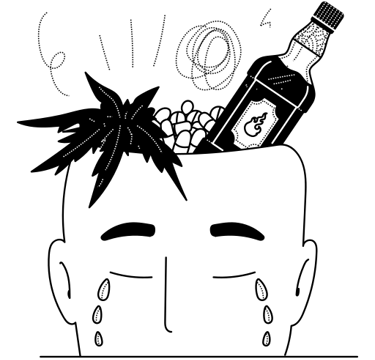Address: 21660 W Field Pkwy, Suite 301, Deer Park, IL 60010

New Hope Ketamine Infusion
Transforming Lives Across Chicagoland, DuPage, Cook, and Kane Counties with Relief for Resistant Depression, Anxiety, and Chronic Pain.
Resistant Depression
Ketamine therapy is a breakthrough treatment for resistant depression, delivering rapid symptom relief when other treatments have failed.
Ketamine infusions provide a rapid reduction in anxiety symptoms by resetting neural connections, offering hope for those with persistent anxiety.
Ketamine infusion therapy offers fast-acting relief by targeting pain pathways, helping those with chronic pain reclaim their quality of life.
Anxiety
Chronic Pain
Welcome to
New Hope Ketamine Clinic!
Mental Health Care for Resistant Depression, Anxiety, PTSD, and Chronic Pain Disorders
The New Hope Ketamine Infusion Clinic Chicagoland IL: Mental Health Therapy is a state-of-the-art treatment center located in Deer Park, Lake County IL. At New Hope Ketamine Clinic, we are dedicated to offering transformative solutions for individuals grappling with resistant depression, anxiety, PTSD, and Chronic Pain Disorders. Recognizing the unique challenges that come with these conditions, we specialize in providing cutting-edge therapies that go beyond conventional approaches.
Our clinic proudly offers Ketamine Infusion Therapy, a breakthrough treatment that has shown remarkable efficacy in alleviating symptoms of resistant depression and anxiety. At New Hope Ketamine Clinic, we believe in providing a new avenue of hope and healing for those on their journey to mental well-being.


Historically, ketamine has been used to induce and maintain anesthesia, including procedural sedation in both children and adults. More recently, a compelling amount of evidence suggests that in sub-anesthetic doses, ketamine infusions can restore the damaged brain pathways known to cause mood disorders. Supported by a breadth of studies and clinical trials, intravenous (IV) ketamine has proven to be a valuable treatment option for many chronic diseases, such as treatment-resistant depression (TRD), anxiety, post-traumatic stress disorder (PTSD), certain pain disorders such as neuropathic pain, Chronic Regional Pain Syndrome (CPRS), fibromyalgia, chronic migraines, and phantom limb.
Discover transformative solutions with Ketamine Infusion at New Hope Ketamine Clinic
A significant majority (over 75%) of patients with mood disorders find relief from their symptoms through ketamine infusion therapy. Many individuals observe improvements within a remarkably short timeframe, typically ranging from 4 hours to 4 days after starting the treatment. It is important to note that there are no known long-term side effects associated with ketamine infusion therapy, and the short-term side effects, which are generally well-tolerated, typically subside within a day. These factors collectively establish ketamine infusion therapy as one of the most rapid, effective, and safe treatments for mood disorders currently available.
Why Choose Anesthesiologists Versus Other Specialties?
As anesthesiologists, we are intimately familiar with the usage of ketamine in the operating room environment. We are more comfortable using ketamine at the higher doses that help us achieve our exceptional success rates. Anesthesiologists are also trained in the handling and treatment of potential emergent situations in the unlikely event that they occur.
Chronic Pain Disorders


Chronic pain conditions, such as fibromyalgia, neuropathic pain, and complex regional pain syndrome, often prove challenging to manage with conventional pain medications. Ketamine infusion therapy offers a novel approach by modulating pain perception and reducing central sensitization. By blocking certain receptors in the brain and spinal cord, ketamine interrupt pain signals, providing relief for patients who have exhausted other options. The therapy is tailored to each individual's needs and administered in a clinical setting to ensure safety and efficacy.
Mood Disorders
Ketamine infusion therapy has emerged as a promising treatment for mood disorders like resistant depression, anxiety and bipolar disorder. By targeting the brain's glutamate system, ketamine can rapidly alleviate symptoms, often within hours or days, compared to traditional antidepressants which can take weeks to show effects. It's particularly effective for individuals who haven't responded well to other treatments. Ketamine infusion therapy is administered under medical supervision in controlled doses, providing relief and hope for those struggling with debilitating mood disorders.
Ketamine infusion therapy is being explored as a potential treatment for alcohol and drug addictions, particularly for individuals who have not responded well to conventional therapies. Ketamine's ability to target specific neural circuits involved in addiction, coupled with its rapid antidepressant effects, shows promise in disrupting addictive behaviors and cravings. Under the guidance of addiction specialists, ketamine infusion therapy is integrated into comprehensive treatment programs to address the complex nature of substance use disorders, offering new hope for recovery and long-term sobriety.
Alcohol and Drug Addictions





Together, We Can Make A Difference & Bring Positive Change.here...
Our Approach
We are here to guide you through your Ketamine journey.
01
02
03
Schedule a Consultation
Get the Ketamine Infusion
Start Feeling Better
Visit our website or call to schedule a consultation with a medical professional.
Discuss your medical history, and symptoms, and ask questions about ketamine infusion therapy.
Schedule a convenient therapy visit at Ketamine Infusion Clinic
Receive ketamine infusion
with supervision from experienced medical staff.Undergo monitoring for a safe and comfortable recovery.
Experience reduced symptoms, improved mood, increased energy, and overall well-being after ketamine infusion therapy.
Continued therapy may lead to further improvements in mental and physical health, enhancing life quality.
"My journey through resistant depression felt endless until I found New Hope Ketamine Clinic. The transformation has been profound, and I am eternally grateful."
Sarah
Tom
★★★★★
★★★★★
Testimonials
"As a cousin, witnessing the transformation at New Hope Ketamine Clinic has been incredible. They're not just surviving; they're thriving. Our family gatherings are filled with laughter and joy once again."
★★★★★
"New Hope Ketamine Clinic brought a ray of hope into my life. The compassionate care and innovative treatment have truly made a difference in my struggle with depression."
Anonymous
★★★★★
"As a brother, watching my sister's battle with anxiety was tough. New Hope Ketamine Clinic has been a game-changer. She's more present and engaged in life, and our family couldn't be happier."
Mark
★★★★★
"The team at New Hope Ketamine Clinic has been my silent support in overcoming depression. The treatment has given me a renewed sense of purpose and a brighter outlook on life."
Jassica
★★★★★
"Discovering New Hope Ketamine Clinic was a turning point in my daughter's fight against depression. The progress she's made has not only transformed her life but brought joy back into our home."
Thankful Mother
★★★★★
Before I came to New Hope I was overwhelmed with depression and anxiety. Every day was a struggle for me. Traditional treatments were frustratingly ineffective. When I learned about New Hope, I was very skeptical but by the second treatment, I started to feel like my old self again. The staff was kind, patient, and supportive every step of the way. I now feel more refreshed and capable of participating in life again. Thank you so much for everything!
"The relief my husband found at New Hope Ketamine Clinic is beyond words. His battle with anxiety is now more manageable, and our family life has taken a positive turn."
★★★★★
Happy Wife
Kevin
"New Hope Ketamine Clinic has been my lifeline in the battle against anxiety. The relief is tangible, and I feel like I'm reclaiming control over my life."
Anonymous
★★★★★

Get in touch
Current & Prior Affiliations












Health Care Professionals' Resources
Sign Up To Receive The Latest Updates On Ketamine Infusion Therapy And Spravato Nasal Spray For Mental Health




Contact Us
21660 W Field Pkwy
Suite 301
Deer Park, IL 60010
Phone:
847-232-4045
Fax:
847-232-4042
Email:
info@newhopeinfusion.com
Treatments
Disclaimer
© 2024. All rights reserved.
Pages
Hours of Operation
Monday 9:00am- 5:00pm
Wednesday 9:00am- 5:00pm
If you or someone you care about is currently facing a crisis, we strongly urge you to contact the National Suicide Prevention Lifeline at 800-273-8255 or call 911 for immediate assistance.

